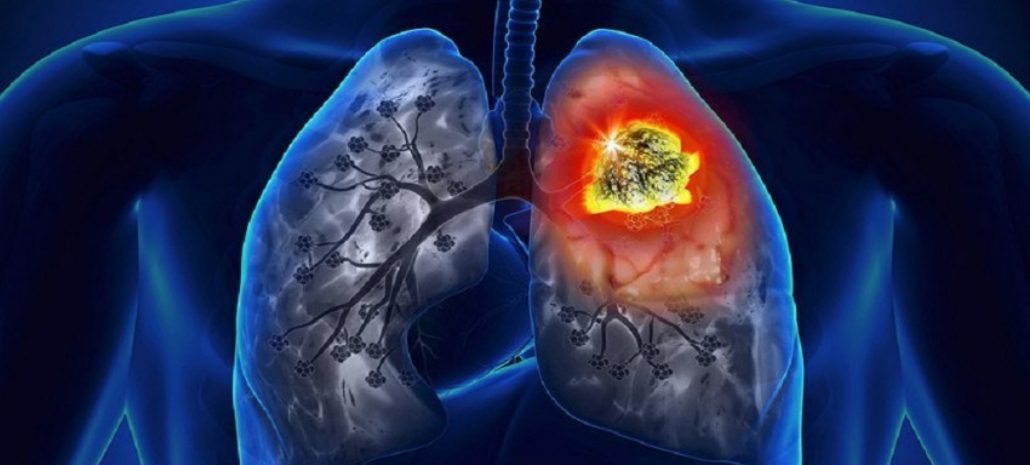Dr Manish Singhal - The best Cancer Specialist in Delhi
What Is The Most Effective Treatment For Lung Cancer?

Lung cancer rates are rapidly increasing in non-smokers and women. 6.9% of all new cancer in India is lung cancer, and 9.3% of all cancer-related deaths in both men and women are due to lung cancer. In fact, lung cancer is one of the most common cancers in the world.
In India, lung cancer is on the rise not only because of the changing lifestyle but also because of the increase in air pollution.
There are two major types of lung cancer, small-cell lung cancer, and non-small-cell lung cancer. Out of the two, non-small-cell lung cancer is more common.
After lung cancer has been diagnosed, several tests, including a test for assessing genetic mutation, are conducted before deciding on a treatment plan.
From the stage of lung cancer, i.e., where the lung cancer has spread to the patient’s age, from overall medical history to the type of lung cancer, from the extent of the disease to the medication or procedure, or therapy tolerance, from treatment expectations to individual preference, the best treatment plan for a lung cancer patient depends on a lot of factors.
In this blog, we’ll talk about the most effective treatments for lung cancer.
Which treatment is best for lung cancer?
There is no one treatment plan which is better than the other because, as discussed, lung cancer treatment depends on a variety of factors. However, all lung cancer can be treated with surgery, radiation, chemotherapy, other medications, localized treatments like laser therapy, or a combination of different treatments.
Generally, cancer specialists treat people diagnosed with non-small-cell lung cancer with surgery, chemotherapy, radiation therapy, even targeted therapy, or a combination of the said treatments, also called multimodality treatment. On the other hand, small-cell lung cancer patients are often treated with either radiation therapy or chemotherapy, or both.
Now let’s talk about the treatments in detail.
Surgery
Surgery is often an option for early-stage lung cancer; that is when the cancer is confined to the lungs.
The types of surgery depend upon multiple factors, including tumor size & location, cancer extent, overall patient health, etc. If cancer has spread, then cancer specialists often recommend chemotherapy or radiation before surgery to shrink the tumor. Not only that, but if there is a chance of cancer cells being left behind post-surgery, cancer doctors also may suggest chemotherapy or radiation post-op.
Types of surgery:
- Wedge Resection-Here a small section of the affected lung containing the tumor is removed with a margin of healthy tissues.
- Segment Resection-Here a larger lung portion is removed but not an entire lobe.
- Lobectomy-Here an entire lobe is removed.
- Pneumonectomy-Here an entire lung is removed.
Radiation therapy
Radiation therapy uses high-energy radiation to kill cancer cells or shrink tumors. It is often used for locally advanced lung cancer pre or post-surgery. It can be used with chemotherapy when surgery is not a viable option. Radiation therapy can also be useful in cases of advanced lung cancer for relieving pain symptoms.
Chemotherapy
In chemotherapy, specialized drugs are used to kill or shrink cancer cells. It can be with other treatments. It is often administered in a series of treatments over a period, sometimes weeks or months. The breaks are for the patient to recover. A cancer specialist can recommend an individualized chemotherapy plan depending on the patient.
Targeted Therapy
In lung cancer, there are multiple targeted treatment options. These treatments focus on unique abnormalities present within a patient’s cancer cells. Targeted therapy remedies the abnormalities & attacks cancer cells specifically but spares the healthy cells. Presently, such drugs have only found use in some cases of non-small-cell lung cancer. For targeted therapy, a gene mutation test is often necessary.
Immunotherapy
Immunotherapy uses the patient’s immune system against the cancer cells. It can come in the forms of drugs, vaccines, and other therapies which activate the natural defenses of the immune system to fight lung cancer.
In some cases, “anti-PD-1” has shown noticeable tumor regression after a round of chemotherapy. Some immunotherapy drugs like pembrolizumab, atezolizumab, and nivolumab have also been approved for certain types of non-small-cell lung cancer.
Lung cancer treatment breakthroughs
- On 1st June 2021, the USFDA approved Lumakras™ (sotorasib) as the first treatment for NSCLC or non-small-cell lung cancer patients with tumors that have the KRAS G12C genetic mutation and have received at least one systemic therapy prior.
- Keytruda monotherapy was found to improve progression-free survival in previously treated, PD-L1–positive advanced NSCLC.
- It was seen that at-home prehabilitation may improve surgical outcomes in lung cancer patients.
- A recent study also demonstrated that a combination of Tecentriq (atezolizumab) plus carboplatin and etoposide can safely improve the survival rate of patients with extensive-stage SCLC or small-cell lung cancer.
Multiple other treatments and treatment adjacents like palliative care, clinical trial participation, coping mechanisms, alternative medicines, can be used and are used in lung cancer.
Lung cancer treatment today-The conclusion
Which lung cancer treatment is best for you? As discussed before, it is entirely dependent on the staging, the spread, the choice, and most importantly, the cancer specialist. If you are a lung cancer patient and want a second opinion or looking for advanced treatment options, you can always consult an expert like Dr. Manish Singhal, a lung cancer doctor in Delhi NCR.
Note
Dr. Manish Singhal is a leading lung cancer doctor in Delhi NCR. With an acute understanding of lung cancer treatment and a rich well of knowledge of the advancements in lung cancer treatment, he and his team have successfully created efficient and customized cancer treatment plans for patients suffering from different types of lung cancer.




